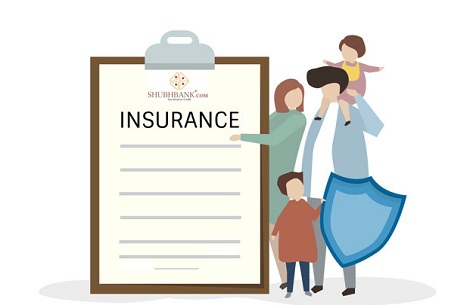Tag: affordable insurance policy

If this pandemic taught us anything, planning the finances and securing the health insurances would be at top of everyone’s list. The situation has also opened up new prospects and new hardships. Therefore, all have to be prepared for all the challenges and surprises that 2020 has in store for you. The various insurance policies are always present to help you along the outbreak. However, you need to assess such policy requirements against the covers you have. There is a definite checklist to follow as health insurance is tremendously important and we have few rights here for you. Looking upon your policy, keep the few checkpoints for health insurance in your mind.
• Change in group health insurance plan: A majority of people rely upon employer provided insurance plans. Whether you rely solely upon it but you need to factor in any changes happened in group cover. To illustrate, if you have changed your job, check upon new clauses. If you feel insured sum is not appropriate, moderate the individual health insurance coverage accordingly.
• Modification to family: There is a great impact of births and deaths of your family members on your health insurance cover. So account for the family members when checking for the most appropriate “Online Health Insurance“.
The principal aim of any life insurance policy is to provide the right amount of life cover and people you going to leave behind your death should not suffer financially. To ensure the best possible cover, you need to evaluate your current life situation. Here are some points to consider before securing any policy cover.
• Family members: If you are planning to get married in 2020 or are due to have a child, you need to expand your cover or if there has been a recent death of your family member, you may not need the large cover now. Life insurance policy requirements change with the changing life scenarios. Therefore, make the changes according to the situation.
• Reduction in responsibilities: If you are due to pay off your last home loan EMI or your child is graduating from college in 2020, you need to reassess your policy or your policy needs a revision. With the reduction of responsibilities, you don’t have to maintain a very high life insurance plan. You can renew the policy and can select a lower cover that would suit your current requirements.
Hence it is a part and parcel of everybody’s life, so evaluate your policy requirements that will make you able to get the right cover for you and your family members. If you have already secured any “Online Insurance Policy“ then check your existing plan and make the changes accordingly. Always make sure that you are not paying any higher premium for a redundant cover. Keep the above mentioned points in your mind and tailor your health and life insurance plans according to updated requirements. Stay healthy and insured to beat the COVID-19 pandemic in all possible ways.

Whenever in your life, you find yourself in a financial crunch where your savings are not enough to cover up the expenses then having an insurance policy can help you to take loan against it. Life insurance policies are known to have lots of benefits over credit cards or traditional loans. Therefore, you can apply for loan against life insurance policy. Your policy will be pledged as security and desired loan quantum will be disbursed to you. However, before taking this loan, you must weigh your options if you are unable to pay the interest on it as these loans will come with certain liabilities if they are unpaid. We have listed some points to keep in mind before taking a loan against Life “Insurance Policy“ to secure you in financial emergency.
1. No credit history needed: Life against insurance policy is very easy to get as there is no credit history needed for it. If you have a good cash value in your policy, you can take a loan with bad credit also but it should be noted that death benefits on your policy may reduce if your repayments are pending at the time of policy claim.
2. Low interest rates: These loans come with possibly low interest rates. You can borrow required funds under the total amount of cash value of your policy. You must remember that the interest rate on loan is generally taken from your permanent policy’s cash value.
3. Slow cash value: Your policy must build in value before you take loan against it. You cannot borrow during the early years as there may be little value of it. You must remember if you default then your policy gets lapsed and you may have to pay some tax over the unpaid portion of loan. Therefore, set a repayment timetable according to your convenience.
4. Unpaid interest can cause trouble: If you are paying the interest out of your budget, you have little to fear but if your insurer is paying with dividends, you may be headed towards some serious problem because unpaid interest can be accrued as income and get added to loan balance. Once the amount gets bigger than the money you borrowed, you will have to pay back the entire amount.
5. Decreased assets: You need to be pretty sure when you take a loan against “Life Insurance Policy“ as lenders will give you many options to choose from. Your policy’s cash value will be pledged as collateral for your loan. The important thing to keep in mind is that once you take this loan, there will be fewer assets to borrow against them in the future. This loan is suitable for the individuals who are facing the unexpected debts and do not afford the costly personal loan.
At the end, availing a loan against insurance policy can be a best choice than availing a personal loan as the interest rates are lower in the former case. Moreover, taking such a loan, you may approach your insurer to secure it rather than trying it from other lending institutions as opting with insurer will get you some flexibility on repayment period and rate of interest will also be low.

Nowadays coronavirus pandemic has pushed whole globe in to lockdowns generating economy crisis and messing household finances. All the world economy has witnessed a standstill and unemployment has risen to unmatched levels. Therefore, your personal finances are also suffering in this crisis. Hence, care must be exercised as smart money management is important for survival. Every individual has to think calmly that will help you to fortify your household finances making you to come out of crisis unharmed. ShubhBank is suggesting you to exercise some pillars of finances and how to manage your money amid “Covid-19 Crisis“ to get autoimmune to the financial crunch.
1. Build emergency funds: You must save something from your monthly income in an emergency fund that can be accessed during critical times such as job loss, medical treatment etc. Never use such savings for lifestyle expenses such as vacations, entertainment or shopping.
2. Liquidate your assets wisely: You should act in an orderly manner and try to liquidate your assets to cover urgent cash needs or to protect your investment from irrecoverable losses. Be careful about the tax implications as well as the costs of liquidation like penalties or exit loads.
3. Top-up your existing insurance policy: Plan to improve your insurance coverage by buying a top-up health insurance policy. It’s an easy way to get additional plus large sized coverage with your existing coverage acting as a deductible.
4. Avoid panic: A clear headed thinking is always needed for your decisions such as liquidation or fresh investment because panic driven action may compound on your ongoing losses. It is always advisable to tolerate the ongoing volatility to earn higher returns later so buy new investments only if they line in with your financial goals.
5. Evaluate your monthly investments: This pandemic has given many valuable financial lessons so no longer align to your goals can be pruned. Always continue making your monthly contributions towards SIPs or any chosen scheme if you have regular income source. Never liquidate your investment if you fall in short with cash.
6. Don’t apply a loan without comparison: Always plan a loan with lowest interest rate and that can be done by comparing the different lenders at online marketplaces. You can “Apply Online Gold Loan“ or LAP at ShubhBank that may carry lower interest rate which in turn charges you less than credit card debt.
7. Use the moratorium if you require: During COVID-19 outbreak, lenders are providing a 3 month moratorium on EMIs. You can use this option if you have cash problem but always be aware of the interest rate that accrue during the deferment. However it may relieve you from stress for short time but if you have a regular income then continue with your repayments as you will gain nothing from the deferment.
8. Keep an eye on your credit card dues: Credit card may charge you higher rate of interest per annum. So never let your dues to build up and keep them repaying to decrease the chances of debt trap.

Nowadays, with an outbreak of COVID-19 all over the world, every individual have realized the importance of health insurance in their life. A “Health Insurance Policy“ is a necessity of modern times as it provides you the financial protection in big medical emergencies or routine ailments. It has become priority that we simply can’t live without blaming it on high rising healthcare facilities. A health insurance plan covers cost of an insured person’s medical expenses in the hospital. As we know, health complications grows more as we grow older so it is better to start it at early age because most of the insurance companies charge lower premiums from the young. So choosing a right med claim policy can be a tough and mind boggling. Here are some essential factors to inform you why health insurance plan from ShubhBank is a great deal to reap the good benefits.
1) Co-Pay term: It is the fixed percentage of hospital bill you have to pay out from your own pocket. For instance, if your plan has a 20% co-pay clause, you have to pay Rs. 200 on a bill of Rs. 1000 and rest will be paid by insurer to the hospital. If you choose a no co-pay policy then you don’t have to burn a hole in your pocket.
2) Coverage Duration: Most of the individuals do not require any medical assistance till the age of 40, so always choose a plan that provides you lifelong coverage. This way you can keep the financial worries far away when your health begins to deteriorate as your hairs grow grey.
3) Waiting Period: Be aware, the expenses related to your pre- existing disease will not be covered in policy from the day you buy the policy. In such cases, you have to wait for a specific period. Before you apply for “Health Insurance Plan“ at ShubhBank, make sure to check the duration of waiting period to get covered for the ailment you are suffering from.
4) Rent of Room: The kind of room you get admitted in hospital matters incredible as your health insurance is concerned. Always check the sub limit on room rent because if you exceeded it, the insurer will end up reducing the sub limits for other medical expenses.
5) Pre and Post Medical Expenses: Pre medical expenses will cover all the series of medical tests of insured person before getting admitted to a hospital while Post medical expenses cover all the charges incurred by a person after getting hospitalized.
At the end, we can say that if you know your policy better, then there are greater chances of claiming benefits from your insurance company. Before you sign up for health insurance from ShubhBank, we advise you to read the terms and conditions carefully, check the list of inclusions and exclusions, compare the different policies offering different benefits and choose the right one that suits best to your requirements and make a wise move.

It is an insurance policy that provides the fixed coverage to the insured for a fixed period of time at fixed rate of payments. In any causality or demise of the person during the policy term, the insurer pays a pre-decided amount of money to the nominee. Some insurance companies in the market also provide coverage in case of full or partial disability. Don’t take it as a financial instrument to generate wealth during the lifetime. The policy holder pays a certain amount of money annually as premium since the start to end of the policy, and in case of death or disability resulting in loss of regular income; the insurer pays coverage to the nominee either as one-time payment or in lump sums. Let us understand the better way that what is the need of term insurance in life?
Availing this insurance will benefits the family dependents of insured person even after they are gone. Every person who has dependents in their family such as parents, spouse, and children should definitely by a “Term Insurance Plans“. It is catered especially for those who are only one to earn bread and butter for their families and have dependents that will face the money crisis after your job loss or demise. The coverage amount received from policy in that case can be used for daily expenditures, higher studies or wedding expenses of their children.
Features of a Term Insurance Policy
The key features of this insurance plan which one should look for before buying it are:
Assured Sum
Assured sum in the plan is the amount of money that is payable to your nominees/dependents after the insured person’s demise.
Age
Every person in the age bracket of 18 to 65 is eligible to “Buy a Term Insurance Plan“.
Maturity age of Insurance
The age at which an insurance policy expires is known as maturity age of the policy. Generally, most of the policies have a maturity age of 75 years but a few may even go up to the age of 85 years.
Policy Tenure
The duration for which an insured has coverage is known as the tenure of the policy. For instance, if a person having age 40 years want to opt for a term plan with a maturity age of 75 years, then, in this case, he will have tenure of 35 years. The tenure period of a term plan may range from 10 years to 40 years depending upon particular insurance company.
Claim Settlement Ratio
Before choosing a term insurance plan, you must ensure that you are buying it from an insurer who is offering a higher claim settlement ratio. This ratio implies the percentage of claims that the insurer offers to policy holder, so one must choose an insurance company on the basis of its claim settlement ratio.
Health Check-ups
The insurer may ask you to undergo some health tests while applying at a certain age or in need of high insurance cover.

Generally, a Life Insurance cover is purchased to safeguard the family in the event of the untimely demise of the bread earner. However, today it is not just restricted to risk cover, but can also help you in securing a loan. You always have an option to secure a loan against your insurance policy. Let us see in the further article that “How Insurance Policy Can Fetch You a Loan“ in hours of need.
One Should Consider Loan against Insurance Policy
The advantage of a loan against insurance features fast approval and requires minimal documentation and has lower chances of rejection. Another attractive benefit is the interest rate, which is lower than any unsecured loan. This also comes handy for individuals having low credit score.
How to Apply For a Loan
The most important step is to go through your policy documents for details and find out what amount you are eligible for by asking your insurer.Once you complete the formalities, your loan will be assessed and your insurer will get in touch with you for transferring the rights to the lender. This usually takes 3 – 4 business days. Once the process is completed, you’ll get your loan money.
How to Check Your Policy’s Eligibility to Secure a Loan
Many lending institutes provide a loan against the surrender value of “Life Insurance in India“. There are some additional terms and conditions attached to your policies when it comes to avail a loan. For example, your policy acquires the minimum surrender value only if you have paid premiums for at least three years and can get a loan only after completing three years.
How Much Loan You Can Avail
You can avail up to 80-85% of the surrender value of traditional insured plans with guaranteed returns. The guaranteed value is the minimum eligible loan quantum that would be available to you and calculated as 30% of the total premium that you have paid, deducting the first premium whereas maximum value will depend upon the surrender value and the cash value of bonuses that you get. The maximum loan amount is usually decided by the actuarial of the insurance company. Some of ULIPs, which provide a loan facility, will offer money that depends on the current corpus value and the nature of fund in the plan. In a loan against insurance, the borrower’s income is a criterion for loan eligibility but the CIBIL score of the borrower will be considered.
Repayment of Loan
The maximum loan tenure offered is up to the tenure of the policy. The repayment period can either go on for the policy tenure or can have fixed number of years for repayment. Like traditional loans, these loans can also be pre-paid without any pre-payment penalty. In case you fail to repay your loan, then your policy will lapse.
Things You Should Keep In Mind
If you default on loan against insurance policy, your family will not get benefits of the policy cover. This is because the lender has the right to claim the maturity amount.
